 Petzlover
Petzlover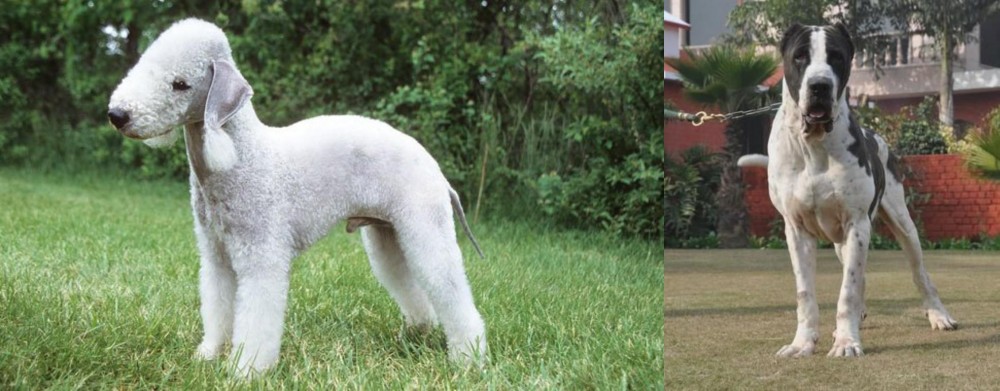 Bedlington Terrier is originated from United Kingdom but Bully Kutta is originated from India. Bedlington Terrier may grow 45 cm / 17 inches shorter than Bully Kutta. Bedlington Terrier may weigh 79 kg / 174 pounds lesser than Bully Kutta. Both Bedlington Terrier and Bully Kutta has almost same life span. Bedlington Terrier may have less litter size than Bully Kutta. Both Bedlington Terrier and Bully Kutta requires Low Maintenance.
Bedlington Terrier is originated from United Kingdom but Bully Kutta is originated from India. Bedlington Terrier may grow 45 cm / 17 inches shorter than Bully Kutta. Bedlington Terrier may weigh 79 kg / 174 pounds lesser than Bully Kutta. Both Bedlington Terrier and Bully Kutta has almost same life span. Bedlington Terrier may have less litter size than Bully Kutta. Both Bedlington Terrier and Bully Kutta requires Low Maintenance.
 Originally known as Rodbury Terriers or Rothbury’s Lambs, and renowned for looking like a lamb, the Bedlington Terrier was bred in the village of Bedlington in Northumberland. They’ve had other names too and were also known as ‘gypsy dogs’ and this is because gypsies used them to hunt.
Originally known as Rodbury Terriers or Rothbury’s Lambs, and renowned for looking like a lamb, the Bedlington Terrier was bred in the village of Bedlington in Northumberland. They’ve had other names too and were also known as ‘gypsy dogs’ and this is because gypsies used them to hunt.
The Bedlington Terrier Club was established in 1875 and the National Bedlington Terrier Club was formed in England in 1877. The breed has links with the Dandie Dinmont Terrier, the Kerry Blue Terrier and the Soft Coated Wheaten Terrier. When you look at the slightly arched back, it could also be related to the Whippet. They have been crossed with Whippets to get that speed, and feisty character.
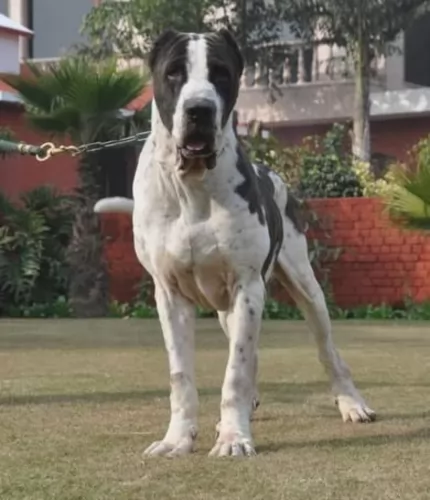 This well built, powerful dog breed is also known as Indian Alangu Mastiff or Pakistani Mastiff. These dogs come from the Punjab and Sindh region of the Indian subcontinent. It is believed that mastiff dogs came with British soldiers during the British invasion, however English Mastiffs, Bulldogs, Bull Terriers and Great Danes are seen as potential ancestors of this large dog.
This well built, powerful dog breed is also known as Indian Alangu Mastiff or Pakistani Mastiff. These dogs come from the Punjab and Sindh region of the Indian subcontinent. It is believed that mastiff dogs came with British soldiers during the British invasion, however English Mastiffs, Bulldogs, Bull Terriers and Great Danes are seen as potential ancestors of this large dog.
There are disputes about the country of origin of this breed, and some people claim that the dog comes from India, while others say it comes from Pakistan. Certainly in Pakistan these dogs are still used for fighting.
 Don’t let their lamb-like appearance fool you – the Bedlington Terrier is a plucky dog who has some amazing speeds when it comes to swimming and running. This is an intelligent dog too and every bit a Terrier in spirit. Their tenacity has seen them being used in dog fighting as well.
Don’t let their lamb-like appearance fool you – the Bedlington Terrier is a plucky dog who has some amazing speeds when it comes to swimming and running. This is an intelligent dog too and every bit a Terrier in spirit. Their tenacity has seen them being used in dog fighting as well.
The Bedlington Terrier stands at about 41cm in height and weighs between 8 – 10kg. Muscular, with a deep chest, graceful and lithe, not only does he look like a lamb but the dog’s expression is gentle too with bright deep-set eyes. When it comes to his coat, the dogs have blue, sandy or liver color coats and the coat has tan markings in some areas.
The coat is shaggy and is made up of hard- and soft hair that will need to be regularly trimmed. Known as a hypoallergenic breed, the coat is also described as thick and linty. The ears are floppy with rounded tips, and are thin and velvety in texture with a small silky tassel at the tip. The longish tail is set low and tapers down to a point.
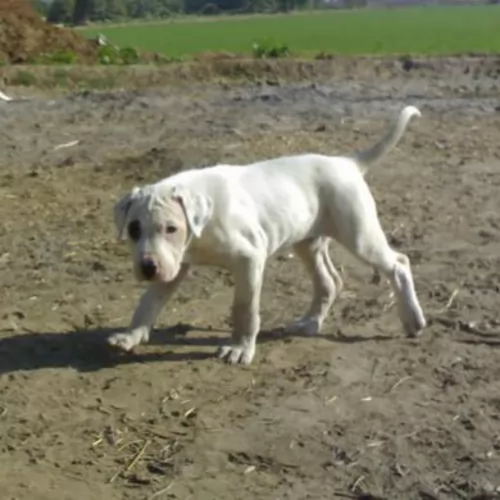 The Bully Kutta is a big, heavy, muscular dog, standing at roughly 81 – 89cm and weighing in at 70–90kg. He isn’t particularly good with children or with other pets simply because the dog is aggressive by nature. If you do opt for this large breed, you’re going to need a large garden and he is going to require a lot of exercise.
The Bully Kutta is a big, heavy, muscular dog, standing at roughly 81 – 89cm and weighing in at 70–90kg. He isn’t particularly good with children or with other pets simply because the dog is aggressive by nature. If you do opt for this large breed, you’re going to need a large garden and he is going to require a lot of exercise.
This is a dog breed that is going to require socialization and training if you want him to be obedient and calm, as he is inclined to be a dominating breed. He’s an intelligent dog and when well trained, he makes a splendid pet with firm, fair owners.
The Bully Kutta has a large, broad head which is supported by a thick well-muscled neck. The skin around his lower jaw is loose. The ears are short, set high and are mostly cropped, but other times they are left to flop over. The tail is sometimes docked but these days mostly left long and tapered.
He has a short smooth coat and is essentially white in color although the coat can also be fawn, brown, black or brindle.
 You can’t miss the Bedlington Terrier – he has a striking resemblance to a lamb. The curly coat is interesting too – a mix of hard- and soft hair. He is friendly, loyal and devoted to his human family and is known to be a brave, courageous, feisty dog with the inclination to bark more. Socialization and training can change this though. He gets on well with children and other pets in the home. He isn’t aggressive but if taunted, he can put up a good fight.
You can’t miss the Bedlington Terrier – he has a striking resemblance to a lamb. The curly coat is interesting too – a mix of hard- and soft hair. He is friendly, loyal and devoted to his human family and is known to be a brave, courageous, feisty dog with the inclination to bark more. Socialization and training can change this though. He gets on well with children and other pets in the home. He isn’t aggressive but if taunted, he can put up a good fight.
This is a dog that can adapt to his surroundings so he slots in well to both city- and country living. Wherever he lives, he will need adequate exercise.
The present-day Bedlington Terrier, inducted by the American Kennel Club in 1967, is not a lamb by any means, and by choosing to have him as your pet, you’ll be amazed at his wonderful qualities that make him such in ideal companion.
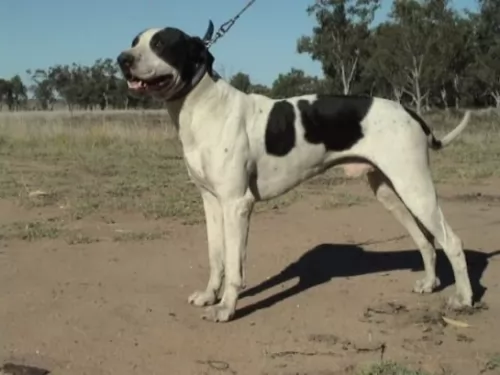 The Bully Kutta is a powerful, imposing dog and they have been nicknamed the ‘Beast from the East’. Unfortunately it is this dog’s thick bones, his looks and his strength that have him used for cruel dog fighting in Pakistan.
The Bully Kutta is a powerful, imposing dog and they have been nicknamed the ‘Beast from the East’. Unfortunately it is this dog’s thick bones, his looks and his strength that have him used for cruel dog fighting in Pakistan.
When not used for fighting, he makes a loyal, devoted companion for the owner who ensures proper socialization and training. Well raised Bully Kuttas are then good with children, being loving, protective and playful.
One just hopes that the future of this giant dog breed is brighter, and that he will be looked upon as more of a companion that just a dog-fighting object to bring in money for his owner.
 Bedlington Terriers are a healthy breed, but just like other dogs, they are prone to some common dog illnesses. You can always ensure that your Bedlington reaches his 12 – 14 years of age lifespan by ensuring his vaccines are kept up to date, that he is fed excellent food and fresh water, he is exercised and that he is loved and cherished. Also, if you’re looking to buy a Bedlington, find a reputable breeder.
Bedlington Terriers are a healthy breed, but just like other dogs, they are prone to some common dog illnesses. You can always ensure that your Bedlington reaches his 12 – 14 years of age lifespan by ensuring his vaccines are kept up to date, that he is fed excellent food and fresh water, he is exercised and that he is loved and cherished. Also, if you’re looking to buy a Bedlington, find a reputable breeder.
Some common health issues to look out for in your Bedlington Terrier include -
Hip dysplasia
Different eye diseases
Hypothyroidism
Copper storage hepatopathy or Liver Disease – this is a disease which can be inherited and where large amounts of copper accumulate in the tissues of the liver. The result is inflammation and cell damage and this can lead to liver failure and even death. Abdominal swelling, jaundice and weight loss are symptoms to watch for with this disease.
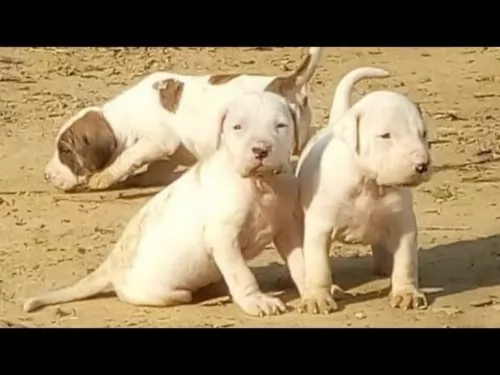 Your Bully Kutta is generally a healthy dog and not often affected by hereditary diseases, but with giant breeds such as this you will have to look out for diseases common to large dogs.
Your Bully Kutta is generally a healthy dog and not often affected by hereditary diseases, but with giant breeds such as this you will have to look out for diseases common to large dogs.
Typical illnesses to watch out for will include hip dysplasia, arthritis, skin allergies and bloat.
This is an inherited condition where the hip joint is improperly formed. For your Bully Kutta it causes wear and tear as well as stiffness in the hips and your dog battles to rise after lying down.
Arthritis in your dog can be managed but it can cause a lot of discomfort for him. This inflammation of the joints can cause pain and stiffness. It is more often seen in older dogs. It can also start at an early age because of problems with bone and joint development and abnormal rubbing within the joint.
Today there are a number of therapy options that can bring some kind of relief to your dog.
 The Bedlington Terrier is a lively, cheerful companion at home and is somewhat more relaxed than other terrier breeds. Affectionate and loyal, he just loves to spend time with his human family. He’ll love to be your companion on a walk and he gets delighted when you’re ready to play ball games with him. He makes a great friend for children too, and even though he makes a good watchdog, he will welcome any visitors you have. When trained and socialized he becomes an obedient, well behaved member of the family.
The Bedlington Terrier is a lively, cheerful companion at home and is somewhat more relaxed than other terrier breeds. Affectionate and loyal, he just loves to spend time with his human family. He’ll love to be your companion on a walk and he gets delighted when you’re ready to play ball games with him. He makes a great friend for children too, and even though he makes a good watchdog, he will welcome any visitors you have. When trained and socialized he becomes an obedient, well behaved member of the family.
The Bedlington coat sheds a little but the rough coat will need to be trimmed regularly and the coat brushed twice a week to ensure no tangling and to remove loose hairs. Also, regular cleaning of teeth and ears can help ensure that harmful bacteria doesn’t build up, ensuring the overall health of your dog.
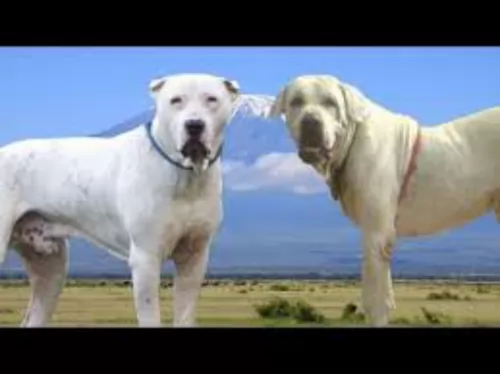 The short coat is low maintenance and as a moderate shedder too, all that is required really is to give your Bully Kutta a good brush twice a week to keep the coat in good condition.
The short coat is low maintenance and as a moderate shedder too, all that is required really is to give your Bully Kutta a good brush twice a week to keep the coat in good condition.
Brush his teeth 2 or 3 times a week with special canine-toothpaste and toothbrush to prevent plaque build-up. He’s a drooler too, so you will need to wipe his face and maybe your clothes of slobber from time to time.
This strong, muscular dog of yours will require an excellent diet. It’s always wonderful if you can give him home-made food such as vegetables, rice and meat. These days you get excellent commercially manufactured food for dogs, and your vet can advise you on the best food for a large, active dog such as the Buly Kutta.
Raw meat is absolutely essential for your dog from time to time and will ensure that his coat doesn’t become dull and with bald spots. Remember, that before dogs were domesticated they used to live on raw meat, so see that he gets some raw meat to prevent skin disorders. Make sure your large pet has a constant supply of fresh, cool water.
Bully Kuttas are going to need a walk every day in the form of exercise. If he is socialized you can take him into the park for ball games. He is a dog that will require plenty of space.